|
Welcome to the Xcursion Risk Tip. These tips are designed to save you time, save you money, reduce risk and improve safety for all of your programs. Today we are going to look at snow sports. Snow sports are a great way to spend a week or to spend an entire season with students developing their skills and also building those relationships and taking on an activity which is fun, engaging and something completely different. However, there are a number of risks involved in snow sports. Today we are going to just look at fitness. The level of fitness significantly impacts your students’ ability to ski or snowboard well and if students are turning up unprepared and unfit, this can lead to a much higher risk and prevalence of injury than if your students are turning up that have done some level of training and fitness leading into the activity. Even if you are going away for a week and especially if you are going away for just a week they still need to turn up fit and ready for snow sports activities. They are using muscles and sort of moves that are quite unique and quite different to what they would usually do in any other sport. So, a level of core training, strength training and flexibility is critical to help them reduce the risk of injury for any snow sports. By doing this for your staff and your students for your snow sports programs, this means that you can reduce the risk of injury so they are memorable and they are fun times at the snow for you and your entire group.
0 Comments
‘We’ve got that covered,’ are often the famous last words of people who under-estimate what’s needed in terms of risk management and who are also over-confident in their ability to deliver. Unfortunately, I’ve seen this so often in schools where people think they have everything covered, that risk management is just an annoying document or ‘it’s someone else’s job to do that.’ The reality is that, one, it’s everyone’s job. Two, nobody else can do it for you and three copy and pasting someone else’s mistakes leaves you liable to their lack of ability to assess and implement good risk management, leaving massive holes in everything.
I’ve also seen schools going down the path of employing someone to do all the risk assessments for them. Now this is problematic on a number of levels. One, I could write endless risk assessments and be confident that we’ve minimised our foreseeable risks and have documented it well. However, that’s like me taking a driving test for someone else. I know I can drive, but can they? What actual understanding of risk do teachers have and why are there still so many issues with risk management? The fact is that unfortunately, the majority of teachers have never had any training in risk management. They’re suddenly expected to know how to write a risk assessment for school excursions, without any training whatsoever. I’ve had some people say to me, ‘But our teachers know how to manage students, so they’re ok.’ I’ve never understood this, as being able to manage a group of students in a classroom, is fine, but risk management for school excursions and activities is far more complex than this and there’s so many considerations and random factors which play into good risk management. These go well-beyond the ability to count the number of students you have with you and make sure they stay together. Risk management training is critically important for all teachers to have. Whilst it does take time and experience to fully develop these skills, there needs to be a solid foundation of training and understanding so that teachers can become good risk managers which helps them in the classroom, on the sports field and wherever else their excursions, international tours and programs may take them. As a starting point, we decided to take our 20 plus years of experience in school risk management and distil it into a 3 hour training course to help teachers develop a solid understanding of risk and risk management and what they need to do when taking any group for a school excursion or activity. How to write a risk assessment for school excursions is like risk management 101 for teachers. It covers everything to get started so they can run safe school excursions and activities for their students. Professional development for teachers is extremely important for their ongoing development. It’s not just classroom practice they need to develop, but all those other skills to ensure they’re keeping their students safe. What is your school’s risk management plan? Do you have one? Does everyone know about it? Do you really know what’s expected of you in regards to your school’s risk management? Is it just about the documents or does it go deeper than that? What’s your school’s appetite for risk? Do you even know what that means? Is the school’s risk management backed up by any sort of budget?
These are some really important questions you should be asking your school administration. With the global pandemic having highlighted some serious challenges for schools and the world, the idea of risk management can feel overwhelming. However, it doesn’t have to be because much of the angst and frustration comes from confusing and contradictory information. Having a solid foundation and understanding of risk management can help reduce some of these concerns now. It is massively beneficial over the long-term for student safety and wellbeing. Unless we have an idea of what’s expected and or the systems in place for risk management at school, it’s hard to know where to start. Most schools have a risk form, which is often completed by teachers with no real understanding about risk management. This is not their fault but is problematic and an issue which needs to be addressed right across the school to ensure good risk management can be developed and applied consistently throughout the school. To achieve this, staff need training and annual refresher courses, or extension courses in risk management. The expectations of risk management need to be clear and able to be implemented by every department, regardless of the subject. This will help reduce injuries, incidents and make every activity which is being run safer and more enjoyable for students. Risk management should not be just made up as the program goes, nor should it be just a piece of paper which someone has to fill in. Good risk management occurs weeks, months and years before a school excursion or activity even begins, but so many schools don’t provide training for their staff, which results in bad outcomes for the school and their students. From years of working in the industry, we’ve seen the same things over and over again and the amount of money and prestige at a school has no bearing on its ability to manage risk. It’s only through good quality training and development that this is possible. Importantly, schools need to allocate money for good quality training, equipment and reviews for all the programs they run which involve a level of risk. Through doing so, this will help build a culture of risk management that results in great educational programs and outcomes for students. Risk management in schools is an interesting and challenging problem. Firstly, there’s nothing in teachers’ training which helps them to understand the role and responsibilities of planning for and managing risk. Secondly, what actually are the risks? What could be considered a hazard or risk in the classroom, is vastly different from what could be considered a risk on the sports field, out on camp, or on an international study tour.
In years gone by, this wasn’t too much of a worry as most teachers weren’t involved with the sheer volume of additional co-curricular programs, excursions, activities and overseas trips which now form part of a normal year at school. Added to this, the focus of risk management in schools has also predominantly been on buildings, grounds, office spaces, classrooms and boarding houses and not on the specific activities which go on outside the school grounds on a daily basis. The fact is, on-site risk management is quite different from off-site risk management. However, often there’s only training available for on-site risks. This makes no sense, as schools continue to run great education programs inside and outside of the confines of the school grounds. As an experienced outdoor education professional, if I were to do a walk-through of an entire school as part of a risk assessment, then I would most likely miss several things because it’s not my specific area of expertise. The same is true when Workplace Safety Professionals attempt to evaluate risk outside of the school. Unless you’re specifically trained in excursion and activity risk, you’re bound to miss something, which can lead to injuries and incidents which could have been avoided. The only education that teachers seem to have in risk management is that at some point, they’re involved in a trip somewhere, doing something, and rather than having any actual training to be able to manage and help run the program, they’re entirely reliant on learning something about what they should be doing through osmosis. The expectation that they absorb something at some point in time, which then magically enables them to manage risk in a well-planned and professional way, is ridiculous in the extreme. Yet that’s basically what’s been the industry standard. People reference ISO31000 all the time. (This is the international standard for risk management). However, if you’ve ever had enough coffee to drink and made it all the way through the ISO, you’ll realise that it’s so broad and general that just reading this doesn’t give you any real idea about how to manage school excursion and activity risks. It does however, outline what the paperwork should look like. Sadly, osmosis and reading ISOs is a rather unreliable means through which people gain even a decent baseline understanding of risk management. It’s like letting your English teachers learn about a text for the first time as they read it in class with their students, or your maths teacher, teach themselves by reading a chapter ahead and asking the other teachers a few questions about ‘this whole algebra thing.’ Schools and teachers have a professional responsibility to manage risk wherever their educational programs take them. Whilst this is a significant concern, which the recent pandemic has focussed everyone’s minds on, rather than just continuing to say it’s a concern and something should be done about it, we decided to do something about it. From our 20+ years of running school excursions, camps, co-curricular programs, sports and international tours, we decided to create structured, professional development training for teachers in risk management that’s specific to excursions and activities. Risk management is not generic and for school activities, it cannot be covered effectively by workplace health and safety risk training. When you’re dealing with students, staff, transport, activities, airports, medical concerns, mental health issues, activities and a range of educational programs, teachers need to be trained and confident in their planning and management of these specific inherent risks to ensure programs are well run and enjoyable. Nobody is ‘just a classroom teacher’ anymore. The more our school programs venture out into the real world, the more important it is to have teachers with great risk management skills. Every time teachers leave the school gates with a group, they’re responsible for the safety and well-being of that group and like the English teacher reading the text as they go, teachers regardless of subject expertise, should not be out on a trip, anywhere, doing anything and making it up as they go. This leads to disaster and at the end of the day, as educators, we want to run great programs which have well-planned safety built into them. We decided to share our experience of risk management, through online and face to face professional development. Over the years, I’ve had the best moments of my teaching career and seen the most impact, when we’ve been out on some sort of excursion or activity. From this, we want to enable all those teachers who want to improve student learning through amazing real world experiences, to be able to gain confidence and strength in their risk management skills so that every trip of which they’re part, is a memorable one for their students for all the right reasons. How often do you review the programs you’re running and how they’re being run? Are there any specific activities which require specialised training, experience or knowledge? When it comes to experiential or outdoor education programs, there are often key activities which need specific training and or experience so they’re able to be run effectively, efficiently and safely. However, when one team member moves on, standards change or complacency creeps in, this can become a significant risk to your organisation and programs.
How often do you review your team dynamics and skill set? What are the strengths of your team? What are the gaps in your team? Can those gaps be amended through staff training or training courses? Do you have a system in place for constantly assessing and reviewing this? To be clear, to begin with micromanagement of staff is definitely not needed here and can be massively counterproductive. However, the opposite is also true. If you have staff whose skills are never developed, reviewed or improved, this can lead to complacency, poor work and an ‘expert’ blind spot situation where everything will be ok, because it always has been. For your organisation, there needs to be a happy and effective medium for this. With no reviews or identification of key skills and experience, or the blind expectation that everyone has the same level of skill because you set a qualification as a minimum standard for employment, then you’re deluding yourself into a false sense of security and setting yourself up for problems down the track. One place I worked, we had all field staff training as a minimum with a Cert IV in outdoor recreation. However, the skills and abilities of each member of staff varied enormously. Their ability to engage students in the group, their ability to setup ropes courses, expeditions and debrief activities all varied massively. Yet they all had the same qualifications. The potential risk in this situation is that you can’t simply allocate staff to activities without understanding their strengths and weaknesses in specific areas. However, the positive of this is that you need people with different and complementary skills to make it a fun and dynamic working environment. That same organisation for which I was working, despite having gaps in training and skills, the team dynamics were really positive as the task and role allocations were done based upon those complementary skills. For example, I can’t reverse trailers. I try, but it never ends well. So one of my colleagues always reversed the trailer. Conversely, some of the team were squeamish with ticks, blood and open wounds, which I wasn’t, so I ended up removing all the ticks and patching up all the gaping open wounds. At the end of the day, we worked well together. However, there were still gaps in skills and understanding of a range of things which caused a number of breakdowns in communications and challenges along the way. It’s therefore critical, even if things are running reasonably well, to review the skills needed to run the programs for which you’re responsible, as part of your ongoing risk management. So often people think of risk management as simply the documentation you’re creating. However, it’s far more than that and the skills and experience of your staff is critical to the way in which risk management is developed and implemented. What are the strengths of your team? What are the gaps in their skills and what training do they need to help close these gaps? Often general risk management training is overlooked versus activity specific training. However, activity specific training, whilst it develops a great set of specific skills, is often the broader contexts of risk management that gets missed when we focus on one specific area. Hence, it’s important to keep this in mind when reviewing the training needs of your team. Once you’ve been able to identify the gaps, then it’s important to provide opportunities for training, or on the job experience to help the team members to improve their skills in this area. This can make a huge difference to the safety and coherence of the organisation and the team dynamics. External training is also critical to ensure that the right skills are being developed and being done in a way that’s also at arm’s length so that internal processes and procedures are also being challenged and tested to help ensure industry standards are up to date and being met. What are your gaps? If you haven’t reviewed where you’re at for a while, then it’s time to do so right now. Identify your skills’ gaps and ensure you get your team trained in each of those areas of need to ensure you’re running safe, awesome experiential outdoor programs for your students. No you can’t do that! … It’s not safe!
This is the deafening catch cry of the fleet of helicopter and drone parents who put the apocalypse, now pilots to shame. Be safe! Take Care! Don’t do this! Don’t do that! Stop! I wanna go home… take off this uniform and leave the show! With such an increasingly large group of paranoid parents who don’t want anything to happen ever, unless it’s a participation award ceremony where the trophies have had their razor sharp edge buffed off, it’s difficult to know how damaging this will be over the long-run. But damaging it is and damaging it will continue to be for years to come. In an attempt to make the world ‘safe and perfect’ for their wonderfully ‘perfect’ children, parents continue to cripple their kids into a false sense of security and confidence, or made them insanely dependent, depressed and anxious about the world. Either way, it’s not a healthy way to raise children. Everyone learns and grows from taking risks, be they physical or emotional risks. If we don’t step outside of our comfort zone and do something, then we make little progress. We don’t learn from our mistakes and we’re unable to understand our true capabilities and grow as a result. Despite the world getting safer and being a far more stable place than it has ever been, for some reason, (probably social media driven) parents seem more fearful and paranoid about everything. They therefore aim to remove all risk and all potential challenges from their children’s lives. There’s just one massive problem with this. It’s insanely stupid and crippling for children and it increases the risk of harm to those children dramatically. If you don’t know what it feels like to take a risk, then you have no way to gauge the level, severity or potential consequences of that risk. Teenagers struggle with this anyway, as their brains are wired to only seeing rewards out of any situation. However, couple this with absolutely neither perspective, experience nor understanding of taking risks, then you end up with an extremely dangerous combination of false confidence and the illusion of that everything will produce a positive outcome. This lack of experience and false confidence coupled with a parent who will never let a child take any risks, results in teenagers who will take completely unhealthy and dangerous risks with no thought of or perspective for the consequences. However, if children are allowed to take risks, they’re going to injury themselves. They’re going to get dirty, scratched, knocked about, but each time this happens, they learn from this and develop a level of resilience. They gain understanding of what they’re capable and of what they’re not capable. They build a level of understanding of risk and from this are able to begin to self-regulate, because they know, if you jump out of a tree and land hard, this could result in a rolled ankle, broken wrist or something that’s unpleasant, but not exactly that bad. We all learn best through our experiences, so those children whose parents don’t let them take any sort of risk, generally drive them to and from school no matter how close it is and don’t let them out of their sight ever. They don’t allow their children to develop a perspective or gauge for risk and consequently are more likely to take dangerous risks as all they have developed over the years is false confidence and nothing more. Taking risks diminishes this false confidence and is critical to long term development so as children turn into teenagers, they’re far more switched on to identify real risks and approach them in a more responsible way. The next time parents ask why you’re doing this activity or that activity, have a positive conversation about the benefits of taking risks and growth in a great way from these experiences. When looking at any activity or required skill within an organisation, there are four levels of competency. As we learn and develop, no matter what the skill or activity is, we all go through these stages from knowing nothing about what we’re doing to being unconsciously competent in what we do.
As we move through each of these stages, it can be quite confronting for many people, especially if they’ve been doing something which isn’t quite right or there’s more to what they’re doing than they’ve ever imagined. The first stage and often the most confronting realisation for people is unconscious incompetence. This is where you don’t know what you don’t know. It’s the most frustrating point at which we find ourselves and in terms of risk management, the most dangerous point and position someone can be in if they’re responsible for an outdoor or experiential program which involves a level of risk. The worrying thing about this is that over many years, I’ve come across countless people in the head of outdoor education or experiential education positions who are unconsciously incompetent. They’ve been promoted as a teacher into a role for which they might have had an interest, but no real or extensive experience. In this case, whoever is put into this role is being failed by the organisation. Having an interest in something versus understanding the role and inherent risks is a totally different thing. If you don’t know the risks of an activity or program, how can you be expected to manage them effectively? Getting some basic training in the skill or activity then helps someone to move from this first stage to the second one, which is conscious incompetence. This is where you realise you lack certain skills and understand the need to train in, practise and develop those skills. In terms of risk management, this is key to getting things right within your school or organisation. For many of those teachers who have been promoted to positions of responsibility to oversee programs with a range of risks involved, it’s vital that each understands the risks to which they and their staff are exposed and how to effectively manage these risks. Once someone has this realisation, then they can start to plan to address this skills’ gap in themselves and in their organisation. Further training and experience at this point, then gets you to a position where you’re consciously competent. You still have to work on many parts of the programs and continue to practise and develop your skills, but overall, you’re good at what you do and are able to support and develop others as well. The final stage is unconscious competence. You know what you’re doing without thinking about it. You have a level of experience and initiation, which guides your decision-making process to support the programs you’re running. In your mind, you have a picture of what a standard program, day or experience should look and feel like and you automatically react and respond if something doesn’t quite fit. For example, if a series of different weather conditions or warnings present themselves, you unconsciously play out various scenarios in your mind as to the potential impact and consequences of this. A realisation of this for me was on one program. There was a pattern of illness and student behaviours emerging which pointed toward a series of potential injuries. The change of energy in the group, the apparent fatigue that was emerging, meant that a change of plans was needed. Due to the different level of skills and experience amongst the staff team, only a couple of staff could see this pattern emerging and others couldn’t see the problem at hand. The potential negative consequences of not being able to identify risks as they’re emerging can be huge. It’s critical to ensure that you have unconsciously competent staff in your team to help advise you and others on hazards and risks which might not be obvious to others who are still at the lower levels of skills’ development. Whilst some of these four different levels can be addressed through training, which is vitally important to begin with, the other levels are grown and developed through practice and experience in whatever it is you’re doing. Further training can reinforce this. However, practice really does make perfect. Whatever level you and your colleagues are at now, you will benefit immensely from training and experience to ensure that all your staff are unconsciously competent in whatever it is they’re doing. Recently, I was working on a residential program and despite students needing to have a phone on them for our risk management as part of the program, we collected everyone’s phones at night. Now this was something which had wide spread support of parents and limited support from students. No surprises there with the Pandora’s box that’s been opened on that front, which is the point of this article.
Whilst many students thought I was the worst person in the world for taking their phones every night, it made me realise something which I suspected, but didn’t quite have the evidence to support it until now. The phones generally went on charge before homework time in the evening around 7:30 and after prep, bedtime was around 9:45 with lights out at 10pm. With all the phones being recharged in the duty office overnight, I noticed something when I went back to wrap things up for the evening. Depending on what time all the students were settled, I’d generally head back into the office somewhere between 10:30 and 11pm. Sitting there, writing up the daily notes for the next day’s handover, I’d hear the buzz, bings and blips of the fifty odd phones going off the whole time I was there. To begin with, it was just annoying, but it became progressively more concerning. One evening, I was up past midnight and the phones were still going. This gave me the sudden realisation of how overwhelming this must be for their minds. Phones are already addictive by nature. This helps us to understand the ongoing problem that teenagers are facing with the inability to switch off from the connected world. If their phones are still alive with notifications late at night and I mean every night, not just weekend, every single night, what chance do they have to be able to cope in class with tiredness and a constant craving for another dopamine hit. Like coked up lab rats, they become slaves to the device that’s shaping and manipulating their behaviour almost every hour of the day. This is bound to be slowly destroying their ability to cope with the real world and doing unknown long-term emotional damage. Yet parents are still giving their children phones at a phenomenal rate. We have well and truly thrown in the towel on this one in such a short period of time. We need to pick up that towel and get back in the ring. This is something worth fighting for as large social media companies care nothing for their users and everything about their profits. These companies have built intentionally addictive functionality into their platforms to keep people online and this is the result, endless distractions designed to manipulate the formative years of children. When you see this toxic mess for what it really is, it makes you wonder about the world 2.0 and how regressive social media has been for us. Digital technology is amazing, but we still need everyone to have the opportunity to switch off from it and not be constantly bombarded with messages, notifications and whatever other crap comes through their phones. Despite the large tech companies doing nothing but giving lip-service to social responsibility, we have a responsibility to help students switch off from this potentially dangerous and destructive world and provide them with the opportunity to understand the life and circumstances in which they find themselves living. It’s time we gave them the opportunity to switch off and build real relationships with real people and not just be mindless slaves, slowly losing their sleep and minds to the wonderful machine that goes bing. Education without focus, is just like anything else without focus. It’s hap-hazardous at best and pointlessly time-wasting and counterproductive at its worst. However, this seems to be the way education goes these days. It’s all over the place where you’ve got a bit of this, a bit of that and a bit of everything. Yet if you’re trying to please everybody with everything, you invariably don’t end up pleasing anybody with anything. The fact is that the world has changed and in recognition of that, so must education.
Recently, I came across a number of different schools that are targeting specific areas for growth and development. I find this is a fascinating approach and one which has the potential to produce some amazing opportunities and educational results. However, how do you know what your child wants to focus on? Often, it’s the parents who want their kids to do something, rather than the desire coming from the children themselves. I’ve seen this horrible and damaging sort of situation so often and you know what the end result will be, but it’s like watching a train wreck in motion. There’s not much you can do about it. The fact is that if this is the case, then no matter how much a parent wants something, it's never really going to be something their son or daughter really wants to do. For example, my parents wanted me to learn the piano. I hated the piano. I didn't enjoy learning. I didn’t enjoy practicing. I didn't enjoy performing. I really didn’t enjoy anything about it. Despite loving to listen to music, I wasn’t someone who wanted to play an instrument of any kind. However, I enjoyed singing and I ended up doing some singing lessons and performances which I really enjoyed. Yet without both these experiences, I would never have known what I liked and what I should focus on. To begin with, it’s well worth encouraging kids to experience a whole range of different activities and explore interests without the parental pressure and expectations to pick one thing that they really want themselves. This process can help students work out what makes them tick and therefore what they should be focusing on in their education, especially in their high school years. I remember when I was in primary school at the end of one term, we did a week of trying out a different sort of activity. We were given a range of different options. We could choose bowling, squash, tennis or even roller skating and I don’t mean roller blading. I mean roller skating! Yes, it was still a thing back then and it was so much fun. You'd skate up to the DJ, request a song, then skate around the rink as fast as you could when your song came on! Unfortunately, the skating rink, ‘Skatehaven’ was turned into self-storage units years ago. Such a sad end to a wonderful venue, but back to the main point! The fact was you were able to choose something and concentrate on it for a week. You’d learn different skills and techniques and you’d be able to challenge yourself doing something new and different. If you didn’t like it, at the end of the week you never have to do it again, but if you liked it, this just opened up a brand-new opportunity and interest for you. That week I chose squash! This is something I really remember about primary school. Most of the time you don’t remember anything about primary school because it was so long ago and far away and but so much better than it is today. Every maths, English, geography and science lesson all blend into one with very little recollection at all of any that really happened. However, when you do something unique and different it stands out and becomes memorable. To be honest, I’ve never played squash since, but I did really enjoy that week. I did however, go on to play tennis which is sort of the same thing anyway. Yet schools don’t tend to do many experiential education weeks like this. If they did, it would have a profound impact on a child’s education and development. Think about it this way. You have schools full of dedicated teachers, whose lessons will never be remembered. That to me seems like a complete waste of time and talent. Perhaps a few more memorable weeks each year doing something different wouldn’t hurt at all. In fact, even if you did a month a year throughout high school, that’s still only six months of a student’s education, which is six months more of experiences they will actually remember, learn from and cherish for the rest of their lives. Even taking this time out, they’ll still have five and a half years of blurred generic grey days in classrooms about which to forget. With the stats suggesting that in Australia 40% of students are disengaged, why not try something different and meaningful to get at least some of those 40% back on track. In what are they interested? What do they love to do? Do you have any idea what drives them? If you don’t know that, you can’t tailor a program for them. Why not have a month every year that’s dedicated to doing different activities and I don’t mean outdoor ed activities, I mean a whole range of community, cultural, sporting and workplace activities to see what actually makes students get excited about their life and contribution to society. Some weeks they will like, some weeks they won’t like but it starts to develop a picture and it starts to give students a feeling for different activities, for different experiences and for different challenges. It lets them develop some ideas of a path that they enjoy and that they want to follow. It lets them explore what they want to explore and this can be tied back into the classroom and academic programs they need to be able to do to get into a specific field which interests them. There’s a great benefit from this because once you have students re-engaged, they’re actually going to learn and so if you have someone who is learning and someone who is keen, they’re more likely to go on to further education or seek positive employment opportunities or contribute in a meaningful way to their communities. They’re less likely to be disillusioned, disengaged with the life, the universe and everything and sitting at home doing nothing. With massive levels of youth unemployment in our country and a growing trend towards automation of many entry level and low-level repetitive jobs, it’s time to do something more useful and productive in education. At the end of the day, things like NAPLAN results and standardized tests are pointless numbers which are quickly forgotten like most classroom lessons. The emphasis that has been put on these things, would give you the impression that they’re useful indicators of long-term learning and employability, which they’re not. At the end of the day, you want young men and women who can think for themselves and be able to help solve the terrible social, environmental and economic mess they’re been left with by previous generations. Finding meaningful experiential education experiences for them to have over the course of their schooling is critical to achieving this and it shouldn’t be lumped as a ‘co-curricular’ or one off activity. Build something useful into the daily lives of students and this will have a profound impact on the way in which they learn. Where do you start with Risk Management? With any experiential education, you have a professional responsibility to pro-actively manage risk. This is an ever-evolving and dynamic skill-set that you develop over the years through training and experience. It’s something we can never take for granted. We take a look at some of the challenges we face in managing risk and what can happen, when things don’t go to plan.
In this episode, we talk with Paul Tame, who is a leading risk management trainer with Xcursion Risk Management Training, Lead corporate management trainer for Zen Training & Senior lecturer at Western State Uni Colorado. We take a dive into risk management for experiential education and touch on a few challenges we all face when planning and running programs. Risk Management Podcast Episode - Paul Tame & David Gregory Talk Risk Management! Often things look great on paper. However, how does that translate into the real world? With risk management for any sort of activity, it needs to be a living and breathing culture within your organisation and not just a bit of paperwork someone completed and then filed away. For more information on Paul’s work and the organisations he’s worked with over the years, check out: Zen For Business https://www.zenforbusiness.net/ Xcursion Risk Management https://training.xcursion.com.au/ Western State Uni https://www.western.edu/ And Crested Butte a fun ski resort we’ve skied together at: https://www.skicb.com/ For more information on Denali: https://www.nps.gov/dena/index.htm https://www.weather.gov/afg/denaliclimbing |
Categories
All
Archives
April 2021
|

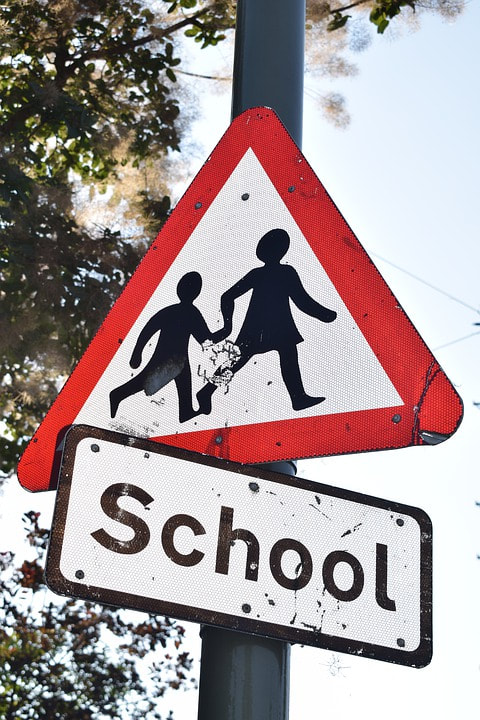

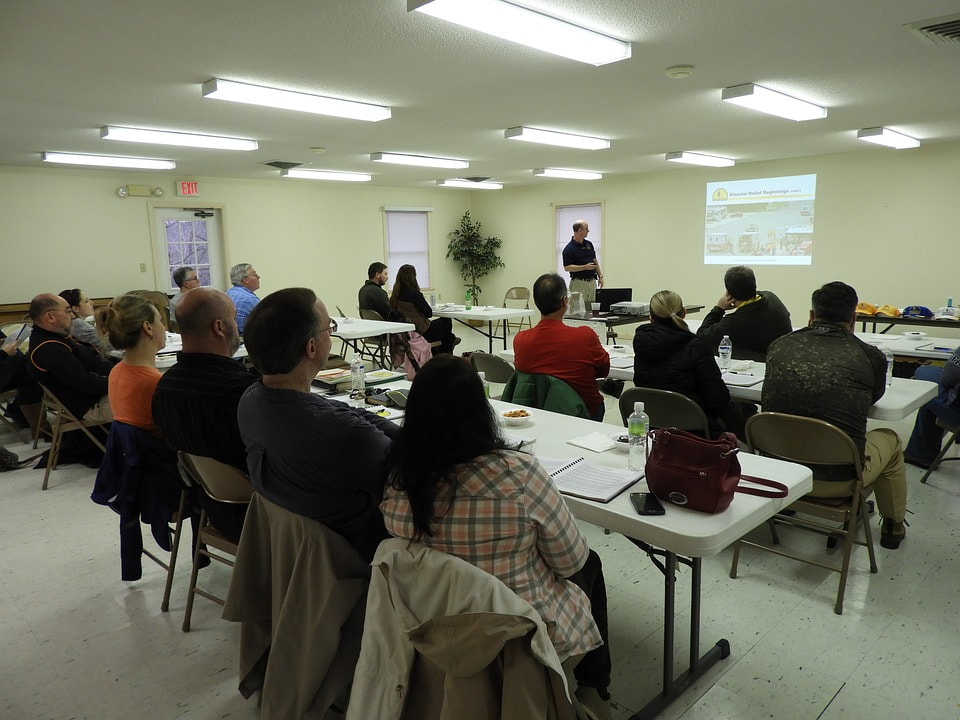
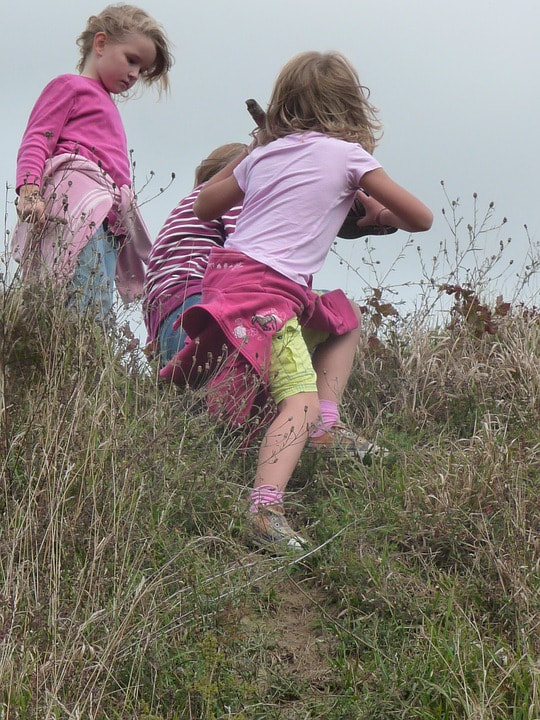
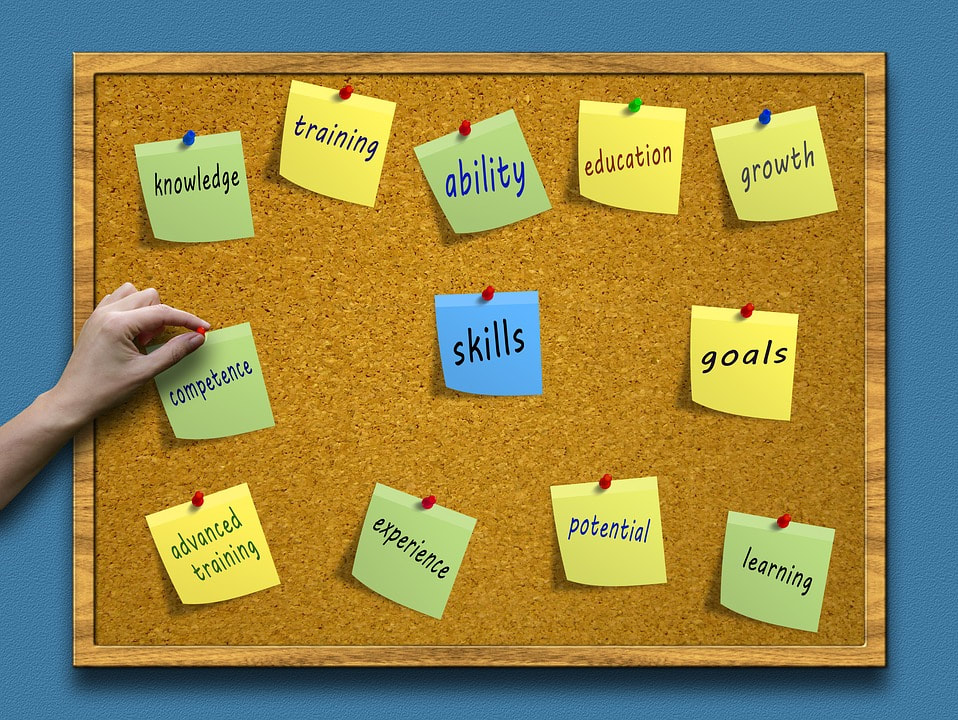

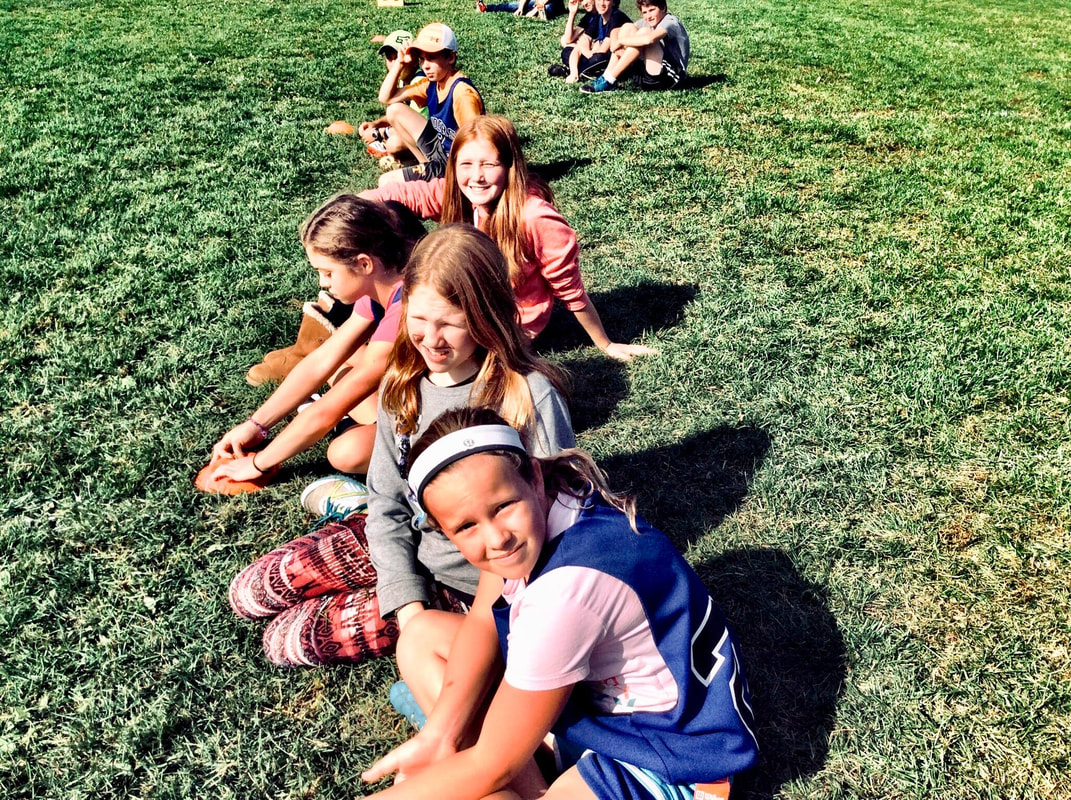
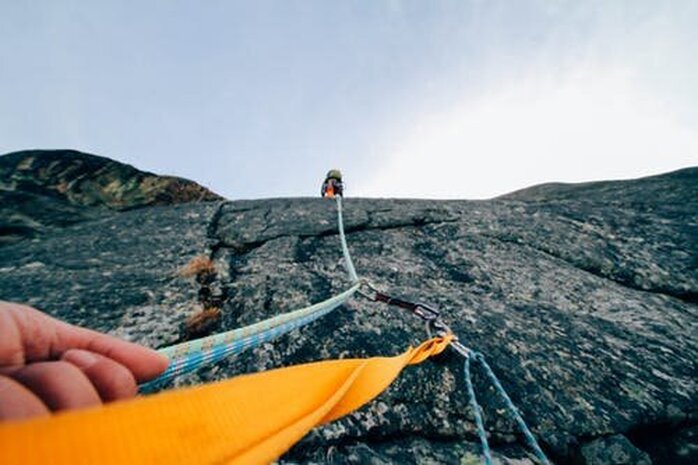
 RSS Feed
RSS Feed